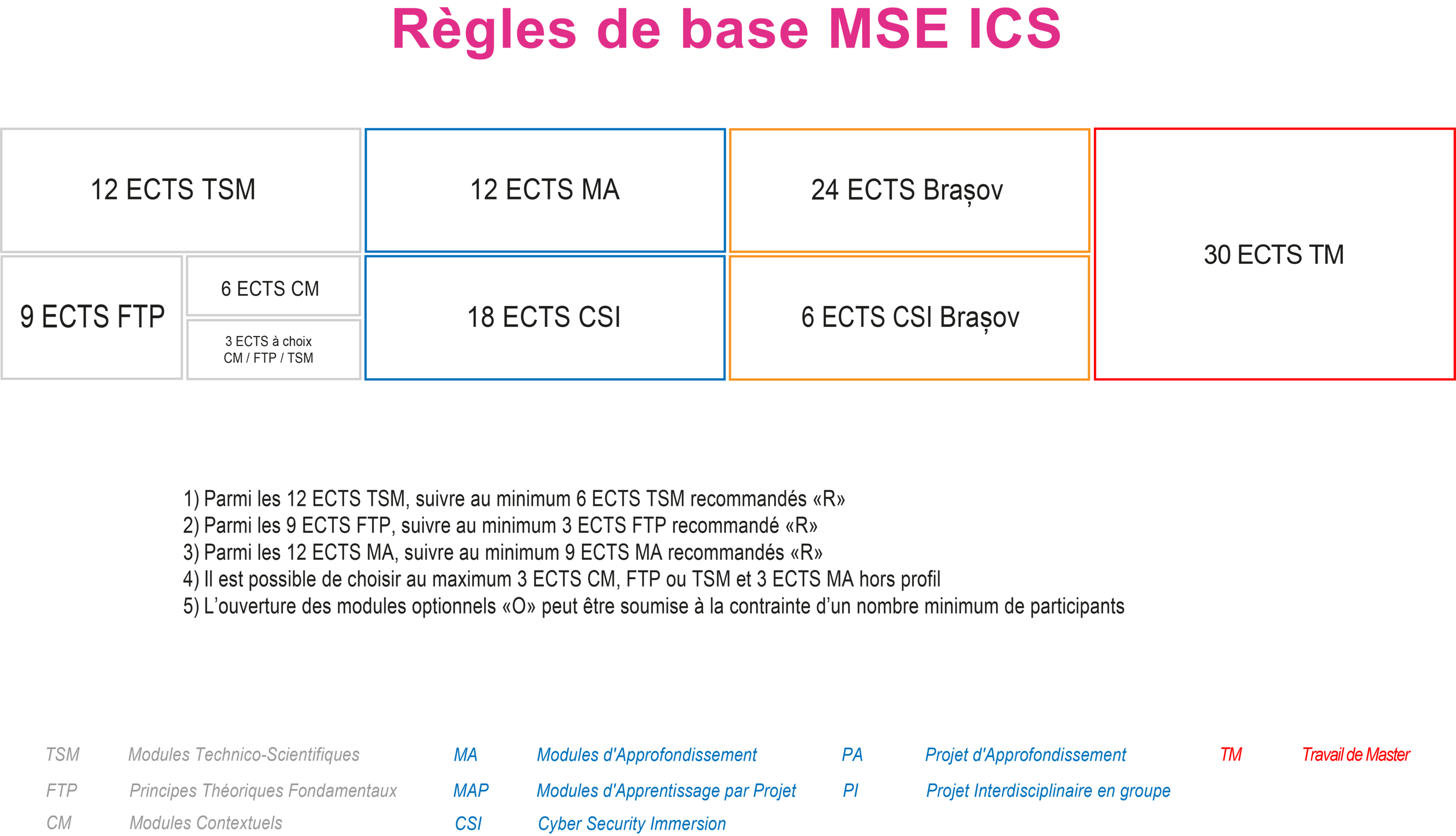The Master of Science in Engineering (MSE) major Information and Cybersecurity (ICS) at HES-SO is a unique program designed to prepare the next generation of cybersecurity professionals. It offers a comprehensive education that blends deep technical knowledge with real-world application, focusing on the protection of both digital (IT) and industrial (OT) systems. This formation innovates in several approaches, mainly by integrating a unique cybersecurity immersion, an internationnal experience, and a double diploma.
About this Program
Why pursue a Master’s in Information and Cybersecurity?
In an era defined by digital transformation and interconnected infrastructures, cybersecurity has never been more critical – or more exciting!
Cyber threats are no longer confined to traditional IT systems – they now extend to critical infrastructures like healthcare, energy, transportation, and manufacturing, where a successful attack can have severe real-world consequences. Cybersecurity is now a critical priority for industries and governments alike.
The ICS program addresses these needs by preparing students to handle the complex and interconnected nature of modern digital and industrial environments. It covers the full spectrum of cybersecurity, including technical, organizational, and human aspects. It addresses security in both IT (Information Technology) and OT (Operational Technology) – two worlds that must work together.
For those ready to shape the future of cybersecurity, this program is the gateway to becoming a leader in one of the most vital fields of our digital age.
Target audience
The Information and Cybersecurity (ICS) profile is part of the Master of Science in Engineering (MSE), a joint educational offered by Swiss Universities of Applied Sciences.
This program is designed for students who have completed a Bachelor’s degree in Computer Science and Communication Systems (ISC), Electrical Engineering, or a closely related field. It is also open to applicants with equivalent qualifications, subject to evaluation.
This makes the ICS profile an ideal choice for graduates looking to deepen their technical expertise, gain practical cybersecurity skills, and prepare for leadership roles in this critical and rapidly evolving field.
Professional profile
Graduates of the Master of Science in Information and Cybersecurity (ICS) will be prepared for a wide range of roles in the rapidly evolving field of cybersecurity.
With their advanced technical skills and deep understanding of both IT and OT systems, these professionals will be equipped to address the complex challenges of securing modern digital and industrial environments. Their expertise will be in high demand across diverse sectors, including industrial automation, critical infrastructure, finance, healthcare, telecommunications, energy, transportation, and government.
Depending on their career ambitions, graduates will be qualified for roles such as:
- Strategic leadership and management, like Chief Information Security Officer (CISO), Security Program Manager, Cybersecurity Consultant, Cyber Risk Manager,
- Specialist and engineering roles, like Cybersecurity Architect, IT/OT Cybersecurity Engineer, Digital Forensics Expert, Penetration Tester / Ethical Hacker,
- Operational positions, like Cybersecurity Analyst, SOC (Security Operations Center) Analyst, Incident Response Specialist, Threat Intelligence Analyst,
Graduates will also be well-positioned to pursue research and innovation roles in the growing field of cybersecurity, contributing to the development of the next generation of secure technologies and systems.
Their potential employers, both in Switzerland and internationally, include private companies, public organizations, government agencies, and cutting-edge technology firms.
Concept of this program
Program organization and timeline
The program is organized over four semesters. The first two semesters are intended to be at HES-SO, while the third semester is an international exchange. Note that the third semester is mandatory and realized in an international partner university (see the list of partners).
For those who require more flexibility, part-time study options are available, allowing students to balance their academic goals with professional or personal commitments. Due to the curriculum constraints, the part-time is organized by case analysis.
International exchange and Double degree
The curriculum includes a mandatory exchange semester. It offers a unique opportunity for students to gain an international experience, allowing them to learn from international experts, expand their global network, gain intercultural skills, and benefit from a diversified academic environment.
Currently, this exchange is conducted with the Transilvania University of Brașov (UNITBV) in Romania, a recognized leader in cybersecurity education (view the cybersecurity curriculum).
Students will earn a double degree: 90 ECTS from HES-SO and 120 ECTS from the international partner.
Unique Student Experience
The program includes the Cybersecurity Immersion modules designed to provide real-world experience. Students will work on a significant and industry-focused project. These modules are designed to bridge the gap between theory, practice, and complex competencies, preparing students for the demand from the cybersecurity industry.
Language
The entire program is in English, ensuring graduates are prepared to work in global cybersecurity roles.
Admission process
Applicants must submit a complete application dossier written in English. It will be evaluated by the local institution (HES-SO) and the international partner.
Admission to the Master of Science in Information and Cybersecurity (ICS) follows the general requirements of the MSE program and requires acceptance by the international partner.
For the 2025-26 academic year, the program is limited to 12 students.
From the 2026-27 academic year onwards, an enrollement of at least 20 students is expected, depending on the capacity of our internationnal partners.
Skills to be developed
Graduates of the Master of Science in Information and Cybersecurity (ICS) will acquire a comprehensive set of skills that span technical, organizational, and human aspects of cybersecurity. These competencies are designed to prepare them for the complex challenges of securing digital and industrial systems in a rapidly changing technological landscape.
Technical Skills
- Advanced knowledge of cryptography, network security, and secure software development
- Expertise in the design and protection of industrial control systems (ICS) and critical infrastructure
- Proficiency in digital forensics, malware analysis, and incident response
- Practical skills in penetration testing, ethical hacking, and vulnerability assessment
- Understanding of IT and OT integration and the security challenges of Industry 4.0
Organizational Skills
- Cyber risk management and governance
- Security architecture and secure system design
- Strategic planning for cybersecurity programs
- Incident management and crisis response coordination
- Compliance with international cybersecurity standards and regulations
Human and Soft Skills
- Critical thinking and problem-solving in high-pressure environments
- Effective communication of complex technical concepts to non-experts
- Leadership and collaboration in multidisciplinary teams
- Ethical decision-making in the context of digital security
- Adaptability to rapidly evolving technologies and threat landscapes
Contact
Sylvain Pasini
Head of the ICS profile (major)
HES-SO Master
Av. de Provence 6
1007 Lausanne
T + 41 58 900 00 00
mse(at)hes-so.ch



